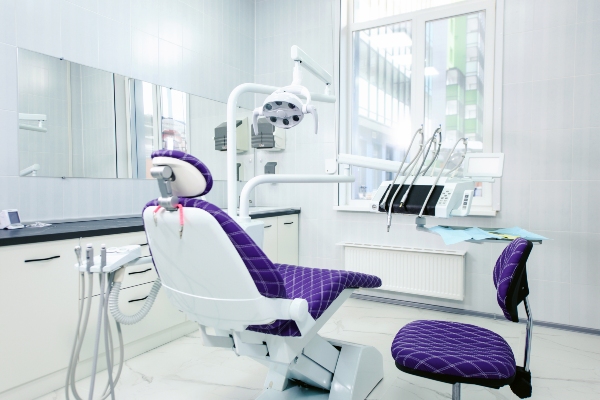Preventative Measures Offered by a General Dentistry Clinic
General dentistry focuses on preventative treatments that keep your teeth and gums healthy. It starts with educating patients about the importance of oral hygiene since that protects you against the two most common issues that people seek the services of a dentist for -- gum disease and tooth decay.
Bacteria in the mouth cause such issues. These microorganisms feed on sugars in the mouth, creating plaque and acids that destroy teeth structures. Plaque hardens into tartar when left on teeth for more than 24 hours, and tartar cannot be removed by brushing or flossing. Plaque and tartar can make their way onto teeth roots and gum pockets, leading to gum disease.
Popular preventative treatments used in general dentistry
Preventative treatments that make up the foundation of general dentistry include the following.
1. Dental sealants
Dental sealants are used to protect against tooth decay. The procedure involves using liquid composite resins to coat the patient’s teeth. The coating goes on the biting surfaces of teeth, preventing food particles, bacteria, and acids in the mouth from making direct contact. Dental sealants can protect teeth from decay for up to five years, and top-up treatments can be performed as needed.
2. Fluoride treatments
Fluoride treatments protect teeth against tooth decay and help re-mineralize the teeth, strengthening their enamel. Fluoride treatments can also reverse the early stage of tooth decay, called the de-mineralization stage.
Dentists have various options when it comes to administering fluoride treatments. The product used might be liquid or in gel form. It is typically applied with a mouthguard that the patient bites down on and keeps in their mouth for up to a minute.
3. Teeth cleaning
Teeth cleaning protects teeth against tooth decay and gum disease. It involves using a metal tool called a scaler to remove plaque and tartar from teeth surfaces. Tartar cannot be removed by brushing, so regular teeth cleanings are needed to remove tartar deposits on teeth.
Tartar contains bacteria and the acids that they make, and it gives them a haven from which they can attack the teeth and gums. Tartar buildup below the gum line can lead to gum disease.
The American Dental Association recommends getting teeth cleanings at least two times a year. Patients who have a higher risk of tooth decay or gum disease might have to get them more frequently.
4. Custom appliances
Dentists can also provide various custom appliances that help protect your teeth and gums. For example, for patients who grind their teeth, dentists can provide nightguards that help reduce the stress placed on the teeth, preventing damage to their structures due to the grinding. Dentists can also provide protective mouthguards for patients who plan to engage in contact sports.
Frequently asked questions about preventative dentistry
Here are the answers to some of the questions you might have about preventative dentistry:
1. When should I floss? Before or after brushing?
Flossing once a day protects you against tooth decay and gum disease. However, dentists typically recommend flossing before you brush. Flossing removes bacteria, food particles, and debris from interdental spaces. These irritants then linger in the mouth as saliva slowly washes them away. Brushing right after you floss gets rid of all the nasty stuff flossing pulled out of your interdental spaces. Flossing after you brush is like cleaning your cabinets after mopping the floor. You might get some food particles on that freshly cleaned floor.
2. What type of toothbrush should I use?
Dentists typically recommend using a soft-bristled toothbrush for oral hygiene. Gum tissues are sensitive, and a hard toothbrush can irritate them, leading to receding gums. A hard toothbrush can also damage enamel, making teeth more vulnerable to tooth decay.
3. How important is it to treat gum disease early?
It could not be more important since gum disease can be reversed in its early stages. Improving your oral hygiene and regular teeth cleanings are typically enough to get the job done. The dentist might also recommend deep cleanings to help reverse the infection in some cases.
However, wait long enough and gingivitis – the early stage of gum disease – will eventually advance to periodontitis. At this stage, the infection can no longer be reversed. Treatments only help to manage it.
Preventative dentistry saves money
Taking good care of your teeth and gums reduces the odds of you having to pay for extensive treatments in the future. Call or visit our Saratoga Springs clinic to set up an appointment with our dentist.
Request an appointment here: https://www.mysaratogadentist.com or call My Saratoga Dentist PLLC at 5186753094 for an appointment in our Saratoga Springs office.
Check out what others are saying about our dental services on Yelp: General Dentistry Services in Saratoga Springs, NY.
Recent Posts
A general dentist performs general dentistry services and can serve as the first point of contact for patients who need other types of dental care. Some services, such as dentures, may require a referral to a dentist who focuses on a specific area of dentistry.The general dentist is usually responsible for preventative care, such as…
Many people use the terms dental office and dental clinic interchangeably. The confusion is understandable, but they are not exactly the same thing. Dental offices have to contain a dental clinic, but there are also dental clinics that exist in places other than dental offices.A dental clinic is a place where a dentist performs oral…
A dental practice can do much more than clean teeth. It is a place where the health and function of your smile are carefully watched and treated. By seeing a dentist often, minor issues can be identified and treated before they become more advanced. Looking out for the health and function of the smile helps…
Many individuals experience oral health issues beyond surface-level discomfort due to underlying conditions and require professional evaluation. A dental practice diagnoses, treats, and prevents these concerns before they progress into more severe complications. Scheduling regular visits with these dental professionals can help you maintain your oral health in the short and long term.Regular dental examinations…

